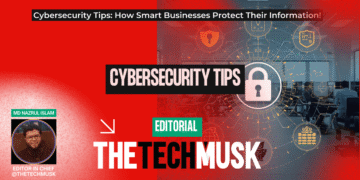In the ever-evolving field of cybersecurity, we asked four industry leaders, including a co-founder and a CEO, about promising emerging technologies or methods for combating cyber threats. From passkey authentication as a promising method to the Zero Trust Model as it ensures robust data security, discover the insights these experts shared on the future of cybersecurity.
- Passkey Authentication: A Promising Method
- Quantum Key Distribution: The Future of Encryption
- Artificial Intelligence: The Cybercrime Fighter
- Zero Trust Model: Ensuring Robust Data Security
Passkey Authentication: A Promising Method
In the evolving landscape of cybersecurity, passkey authentication stands out as an especially promising method for thwarting cyber threats. Traditional passwords, susceptible to breaches, phishing, and human error, have long been recognized as a vulnerability.
Passkey authentication, on the other hand, offers a more streamlined and secure approach. Instead of remembering complex passwords, users use passkeys and thus leverage inherent factors like biometrics. Passkeys are two-factor authentication by default, as they require a biometric trait and a corresponding hardware piece (e.g., smartphone, laptop) without relying on a password.
Passkey authentication doesn’t just improve user experience—it fundamentally raises the security baseline. In an era where cyber-attacks grow in sophistication daily, embracing robust, user-friendly solutions like passkey authentication is paramount.
Vincent Delitz, Co-Founder, Corbado
Quantum Key Distribution: The Future of Encryption
One of the most promising technologies in the realm of cybersecurity is Quantum Key Distribution (QKD). As we edge closer to the era of quantum computing, traditional encryption methods, including RSA and ECC, become vulnerable to quantum attacks. QKD leverages the principles of quantum mechanics to create and distribute cryptographic keys, making it almost impossible for eavesdroppers to intercept without detection.
The fundamental property of quantum mechanics that QKD utilizes is the no-cloning theorem, which prevents the exact replication of arbitrary unknown quantum states. In a QKD setup, any attempt to eavesdrop or measure the quantum states will disturb those states, alerting the communicating parties to a potential security breach. Thus, it offers unparalleled security assurances.
While challenges like transmission distance and integration with existing infrastructure remain, QKD provides a forward-looking solution, ensuring that encrypted data remains secure.
Tyler Guffey, CEO, SycamoreNet
Artificial Intelligence: The Cybercrime Fighter
One emerging technology that is proving to be very effective in combating cyber-threats is artificial intelligence (AI). AI can detect and respond to malicious activities before they cause significant damage. This makes it particularly useful for monitoring networks, identifying suspicious activity, and responding quickly to potential threats.
Additionally, AI can also automate mundane tasks, such as patching or updating software, freeing up resources for more important security tasks. As AI continues to improve, it is becoming an increasingly valuable tool in the fight against cybercrime.
Scott Orn, Chief Operating Officer, Kruze Consulting
Zero Trust Model: Ensuring Robust Data Security
Implementing a “Zero Trust” model is pivotal for robust cloud data security. Rather than assuming trust based on location, this model advocates verifying the identity and context of all users and devices.
By employing strict identity and access management, multi-factor authentication, least privilege access, and continuous monitoring, organizations can fortify data protection. This dynamic approach adapts to changing threat landscapes, minimizing risks and ensuring data remains safeguarded throughout its lifecycle.
























